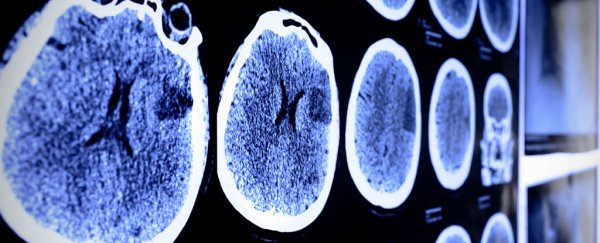The benefits of learning another language aren't limited to just getting by in another tongue. They may also extend to a host of hidden cognitive benefits that could protect your brain in the case of a serious health episode such as a stroke or dementia, according to a new study.
Researchers from the UK and India gathered data from 608 stroke patients in Hyderabad, India, and found that people who speak more than one language have a greater chance to recover from a stroke than monolingual people. And the increase in recovery prospects is by a significant margin too – bilingual people (and those who speak more than two languages) are said to be twice as likely to have normal cognitive functions after a stroke as monolingual people, even after taking into account other factors such as smoking, high blood pressure, diabetes and age.
According to the researchers, the ongoing mental challenges involved with speaking more than one language may boost a person's cognitive reserve, leading to an improved ability to cope with damage to the brain stemming from incidents like a stroke.
"Bilingualism makes people switch from one language to another, so while they inhibit one language, they have to activate another to communicate," said study co-author Thomas Bak, a researcher with the University of Edinburgh in the UK. "This switching offers practically constant brain training which may be a factor in helping stroke patients recover."
In addition to demonstrating a greater likelihood or recovering their mental faculties after a stroke, bilinguals - defined in the study as those who spoke two or more languages - also performed better on post-stroke tests that measured their attention, along with their ability to retrieve and organise information.
It's worth noting that the particularly impressive recovery results shown by patients in the study may be tied at least in part to the lingual characteristics of the area where the research was based. As the researchers note in their paper, which is published in Stroke, Hyderabad is a multicultural city that plays host to a wide range of different tongues, including Telugu, Urdu, Hindi, and English. As such, the 'brain training' people living in Hyderabad are exposed to – and the theorised benefits resulting from it - may not be replicated in equal measure elsewhere.
"Constantly switching languages is a daily reality for many residents of Hyderabad," said Suvarna Alladi, a neurologist at Nizam's Institute of Medical Sciences (NIMS) in Hyderabad. "The cognitive benefit may not be seen in places where the need to function in two or more languages isn't as extensive."
That said, you don't have to live in an area where speaking multiple languages is common in order to potentially boost your cognitive reserve. Previous research has also shown that bilingualism can delay the onset of Alzheimer's disease, but the researchers say learning how to speak another language isn't necessarily key to helping you improve your chances in recovering from a stroke – although keeping your brain active throughout life could be.
"Our study suggests that intellectually stimulating activities pursued over time, from a young age or even starting in mid-life, can protect you from the damage brought on by a stroke," said Subhash Kaul, one of the team at NIMS.
